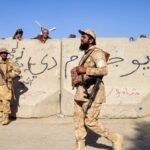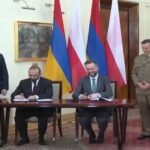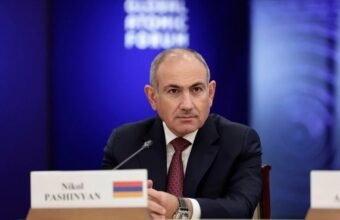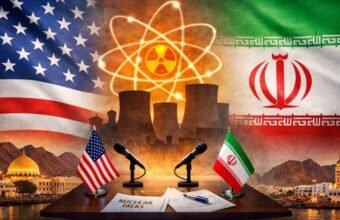The crash of an Azerbaijani airliner in Kazakhstan has killed 38 of 67 people on board.. Azerbaijan Airlines’ Embraer 190 was en route from Azerbaijani capital of Baku to the Russian city of Grozny in the North Caucasus on Wednesday when it was diverted for reasons that aren’t fully clear yet. It crashed while making an attempt to land in Aktau, Kazakhstan, after flying east across the Caspian Sea.
The plane went down near the coast about 3 kilometers (2 miles) from Aktau. Cellphone footage circulating online appeared to show the aircraft making a steep descent before hitting the ground and exploding in a fireball.
Rescuers have rushed 29 people who survived the crash to hospitals.
How did Azerbaijan react?
Azerbaijan observed a nationwide day of mourning on Thursday. National flags were at half-staff, traffic across the country stopped at noon, and sirens were sounded from ships and trains.
Speaking at a news conference on Wednesday, Azerbaijani President Ilham Aliyev said that the weather had forced the plane to change from its planned course.
What do officials and experts say about a possible cause?
Kazakhstani, Azerbaijani and Russian authorities say they are investigating the crash. Embraer told The Associated Press in a statement that the company is “ready to assist all relevant authorities.”
Russia’s civil aviation authority, Rosaviatsia, said that preliminary information indicated the pilots diverted to Aktau after a bird strike led to an emergency on board.
However, some aviation experts say the holes seen in the plane’s tail section pictured after the crash likely indicate that it could have come under fire from Russian air defense systems fending off a Ukrainian drone attack.
Mark Zee of OPSGroup, which monitors the world’s airspace and airports for risks, said that the analysis of the fragments of the crashed plane indicate with a 90-99% probability that it was hit by a surface-to-air missile.
Osprey Flight Solutions, an aviation security firm based in the United Kingdom, warned its clients that the “Azerbaijan Airlines flight was likely shot down by a Russian military air-defense system.”
Osprey CEO Andrew Nicholson said that the company had issued more than 200 alerts regarding drone attacks and air defense systems in Russia during the war.
FlightRadar24 said in an online post that the aircraft had faced “strong GPS jamming” that interfered with flight tracking data allowing to monitor planes’ flight path. Russia has extensively used sophisticated jamming equipment to fend off drone attacks.
A day later, no definitive word
Yan Matveyev, an independent Russian military expert, noted that the images of the crashed plane’s tail show damage compatible with shrapnel from the Russian Pantsyr-S1 air defense system.
It’s unclear why the pilots decided to fly hundreds of miles east across the Caspian Sea instead of trying to land in Russia after the plane was hit, he said, adding that they probably faced restrictions on landing at a closer venue and may have thought that the damage was not critical.
In Azerbaijan, Caliber online newspaper also claimed that the airliner was fired upon by a Russian Pantsyr-S air defense system and also had its systems affected by jamming equipment as it was approaching Grozny.
The paper questioned why Russian authorities failed to close the airport despite the drone attack in the area on Wednesday, and why they didn’t allow the plane to land in Grozny or other Russian airports nearby after it was hit.
Asked about the claims that the plane had been fired upon by air defense assets, Kremlin spokesman Dmitry Peskov told reporters on Thursday that “it would be wrong to make hypotheses before investigators make their verdict.”
































